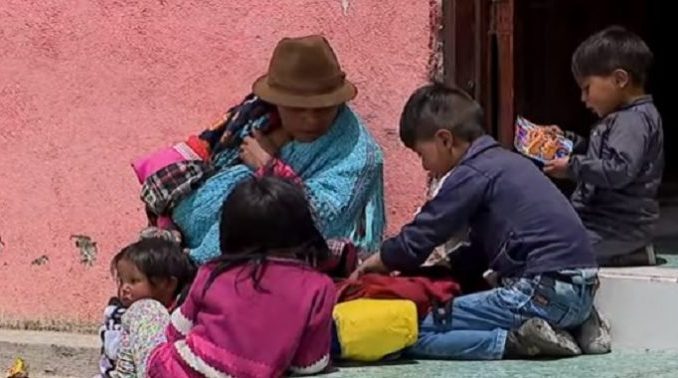
Erwin Ronquillo, secretary of Ecuador Grows without Malnutrition, pointed out that 380 thousand children with chronic child malnutrition are registered in the country, according to a study released in 2018, which is why the Government has set itself to reduce this rate by 6% to 2025 with long-term public policies and programs.
“Here it is important to be able to work together, as a State we are not going to achieve it alone, we have to unite as a country.”
He explained that it is not only a question of food but also of access to health care and the social area whose financing gap reaches USD155 million per year and on the other hand is the provision of safe water for consumption for which USD1,100 is required million in order to reach 80% coverage.
“In rural areas only 50% have access to safe water, the rest consume water from ditches and rivers; that is the competence of the Decentralized Autonomous Governments that is why we reiterate that this fight is being done together ”.
He indicated that children who are in this situation show growth retardation, a decrease in cognitive, social and emotional development, which is evident in the adult stage: “If you are in a situation of poverty, it is most likely that there, that is why the President defined that this be a priority of the Government ”.
He explained some of the actions that will be promoted in order to mitigate this problem, such as:
Provide security from the time of conception, arrived with medical attention to mothers, providing them with nutritional supplements, iron, folic acid and having at least 5 check-ups during pregnancy.
Ensure baby check-ups in the first two years of life
Promote exclusive breastfeeding for the first six months
“In other words, working in the first thousand days of life so that they have access to State services. Once that period passes we can make a difference, because afterwards it is difficult to reverse it ”.
He asserted that an intersectoral plan has been developed with the participation of the GADs, who are the ones who best know the situation in the territory, in addition to the help of international agencies that have offered to send experts on the subject and in that sense, he pointed out that a few weeks ago the CAF provided a loan of USD200 million tied to the fulfillment of goals.
He reported that a malnutrition awareness campaign will be promoted and then work on empowerment and action: “Make known what we should do in our homes with the children. It is a stage to raise awareness ”.
He argued that this is not just a matter of poverty but of a lack of habits because even in the highest economic stratum there is 14% malnutrition: “There is a lack of culture, we are going to work on changes in nutritional behavior and hygiene.”
He announced that they are working with the INEC to work on a methodological pilot plan in 2021 in order to make an evaluation and have more accurate results at the beginning of 2022.

Be the first to comment